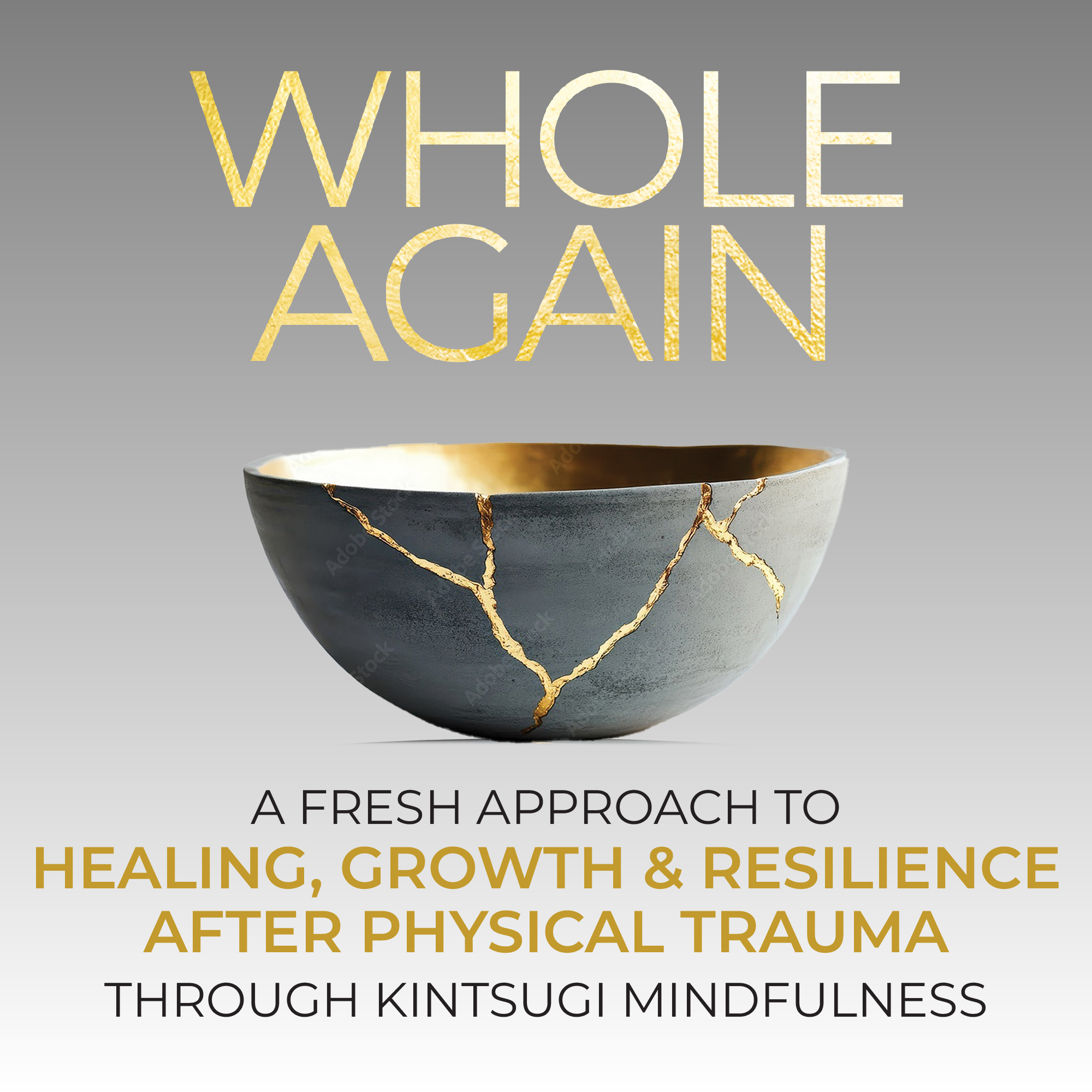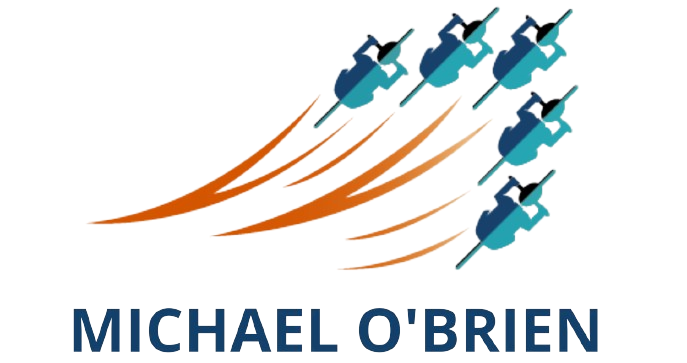
200 | How a Single Word Shift Can Spark Resilience in Your Trauma Recovery and Self-Care Journey
Are the words you use holding you back from healing?
When you’re recovering from injury or trauma, the way you label your experience can either shut down growth or unlock resilience. In this episode, discover how a simple mindset shift rooted in Stoic wisdom—and a digital detox tip—can help you reconnect with your senses and reclaim your power.
Takeaway
- Learn why calling something “bad” can limit your ability to grow through it.
- Discover the empowering reframe that helps you meet hard moments with clarity and acceptance.
- Try a digital health practice that strengthens your mind-body connection and supports your healing journey.
Listen now to reframe your recovery, reset your senses, and take a mindful step toward becoming whole again.
If this episode sparked something within you, please download it and share it with a friend.
Kintsugi is the Japanese art of repairing broken pottery with gold, silver, or lacquer, highlighting the cracks rather than hiding them. It embodies the philosophy of wabi-sabi, which finds beauty in imperfection and teaches that breakage and repair are part of an object’s history, making it more valuable rather than less. Metaphorically, Kintsugi reminds us that our challenges, scars, and setbacks are not something to be ashamed of but can be embraced as a source of strength and transformation.
Discover how to scroll less and live more by taking my Free Smartphone Wellness Audit by clicking phone.
Did you know that stickers are wonderful visual cues to help you create healthy habits? You can get one of my free Pause Breathe Reflect sticker by clicking sticker.
To discover more and sign up for My RIPPLE EFFECT newsletter by clicking Ripple Effect.
We can also connect on LinkedIn.
Subscribe to be sure you don’t miss any of the micro-meditations, wellness tips, and guidance that I publish every Monday, Wednesday, and Friday at 7:11 am.
If you feel you need more mental health support, please contact NAMI. This is a good place to start. If you have a question or comment, please reach out to Michael@PauseBreatheReflect.com.
With Whole Again: A Fresh Approach to Healing, Growth & Resilience after Physical Trauma through Kintsugi Wisdom, listeners explore resilience through personal stories of trauma, scars, and injury while learning to overcome imposter syndrome, self-doubt, and perfectionism with self-compassion, self-love, and self-worth. Through insightful discussions on stress management, mindfulness practices, and digital wellness, the show offers practical tools like breathwork, micro-dose meditation, grounding techniques, visualization, and daily affirmations for anxiety relief and stress relief. Inspired by the art of kintsugi, the podcast embraces healing as a process of transformation, encouraging a shift in perspective from worry and being overwhelmed to gratitude and personal growth. By exploring the mind-body connection, micro-dosing strategies for emotional well-being, and holistic approaches to self-care, this podcast empowers listeners to cultivate emotional resilience and live with greater balance and intention.
Transcript:
In this episode, I’ll share one mindset shift that can wake you up to all your senses and help you heal, grow, and become more resilient. Hey there, it’s Michael. Welcome to Whole again. A show about helping survivors of physical injury and trauma reclaim their strength and resilience through the wisdom of Kazuki on Fridays.
I love sharing a microdose of wisdom to help you become whole again and step into the person you’re becoming. And today. I wanna share a perspective with you that roots back to stoicism as we’re covering the topic through the month of April on the importance of choosing your labels and a digital health tip that can wake you up to all your senses.
But first, I wanna say thank you for being here. And did you know this is our 200th episode of Whole Again, how awesome sauce is that? So whether this is your first episode of Whole Again, or you’ve listened to all 200 episodes, thank you for being here. Thank you for showing up as one survivor to another.
I know that showing up isn’t always easy. So the fact that you’ve shown up today to be here in our community means the world to me. So thank you for showing up and thank you for being a survivor. Okay, let’s dive into the concept of hard things of we’re going through something like trying to recover that hard thing because recovery is hard, can easily morph into a bad thing.
What the stoics teach us is that things are not necessarily bad or good as I record this next to me is my no bad day pillow because I call the day of my accident, my last bad day. I got really serious about how I choose to label things. When things get hard and we label them as bad, we shut off any possibility for growth.
Now, I’m not gonna tell you that every opportunity is a growth opportunity, but when we go through something as tick, knock Han said, no mud, no lotus. When we’re going through the muddy parts of life, as we’re going through a muddy recovery, there is the potential for post-traumatic growth or that beautiful lotus blossoming on top of the lily pad.
So as you look at the things that are in front of you, those hard moments that are all part of recovery, be cautious on how you label things. You don’t have to label them as bad. You can simply say, this is hard, and you know what it is. So we get to a level of acceptance. We meet the moment in the moment.
So we label it as hard, but you know what? You can do hard things and together we can do hard things. So as you travel forward into your recovery, be mindful of the labels you use. Try to stay away from good or bad, or right or wrong, because when we take on binary labels, it shuts the door on our potential growth.
Okay. Here’s the second thing I would like to share with you today, and it’s a digital health tip because we know that our digital health impacts our physical, mental, emotional, and spiritual health. When our digital health isn’t right, it impacts our healing. It impacts our growth. So here’s the tip I would like to share with you today.
When you’re getting after your physical therapy or perhaps going for a walk or working out, leave your phone at home. Now, I know for safety reasons you may wish to bring your phone. That makes sense, but you don’t have to turn it on. You don’t always have to have something in your ears by not listening to your phone as you.
Or you go for a walk or you’re working out. Even when you’re working out inside and you’re not in front of a whole bunch of screens or connected to a device, it allows you to wake up to all your senses, which is how we experience life. It also allows you to tune into your body so you understand your body better.
You can hear what it might be trying to say to you as you go through your recovery journey. Now, I know that sometimes it’s helpful to watch something or listen to a book or perhaps a podcast like Whole Again or Turn your favorite song up to 11. It makes the time pass by a little bit easier. Plus music can be medicine, it’s motivating.
So as I offer this tip up, I’m not saying that every physical therapy session or workout should be phone free. Inside. I’m listening to things all the time. What I’m saying is, every now and again, turn off your devices. Bring your phone with you for safety, but just tune into your body, tune into the sights and sounds and smells that are all around you.
Strengthen this connection between you and the body. It will help you in your recovery. It’ll help you as you grow, and it’ll help you become more resilient. So that’s the digital health tip of this week,
and there you have it. Again, thanks for being here and tuning in to whole again. In this episode, I shared the importance of choosing your labels wisely, and a digital health tip that can wake you up to all your senses. Again, thanks for being here,
and if you wish to further enhance your digital wellness, I’ll invite you to take my smartphone wellness check. It’s free, and you can find the link in the show notes and discover how to. Scroll less and live more, and I hope you’ll join us each Monday, Wednesday and Friday at 7:11 AM Eastern here on Kintsugi, and discover how we can celebrate our scars as golden symbols of strength and resilience.
Again, thanks for being here. I appreciate you.




Leave a Reply